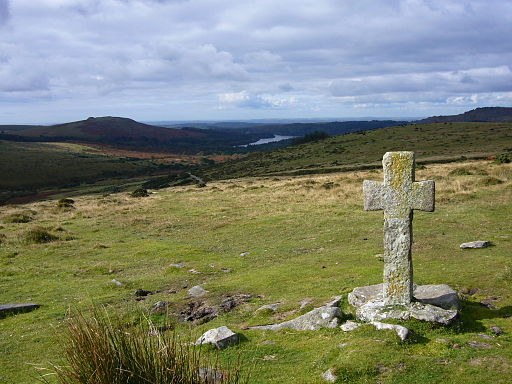The Dark Night of the
Soul
Psalm 22 begins as an outcry of tremendous affliction. So much so, that just before Jesus dies on the cross, he appears to quote the first line of David’s outcry: “My God, my God, why have you forsaken me?” (22:1)

I say that Jesus appears to quote this line because of my uncertainty that David provided these words for Jesus’ later use. Certainly they came from David’s lips, this leitmotif of suffering and distance from God the Father just before the fulfillment of God’s promise of redemption. But Dietrich Bonhoeffer puts it better when he writes, “The same words that David spoke, therefore, the future Messiah spoke in him. Christ prayed along with the prayers of David, or, more accurately, it is none other than Christ who prayed them in Christ’s own forerunner, David.” (You can find this quotation taken from the Zondervan Bible Commentary note: “The Dark Night of the Soul”.)
Poetry and Prophecy
This is an important Psalm for many reasons—and I initially wanted to reflect on the entire work—but having read verse one, along with some of the commentary on it available via Bible Gateway Plus, I’m compelled to pause and linger here on a phrase that links the Old and New Testaments in a powerful way.
A close reading of Bonhoeffer’s thoughts on Psalm 22:1 shows
how the German theologian understood the God-breathed nature of all Scripture as well as God’s position above, or outside of, a human sense of time.
“My God, my God, why have you forsaken me?” These words are
shared between David—who is Christ’s forerunner—and Jesus Christ himself: the culmination of the Davidic line. Bonhoeffer’s words recognize the past, present, and future mixture of their common outcry. “…the future
Messiah spoke in him [David, who is in the past]. Christ prayed along with the prayers of David, or, more accurately, it is none other than Christ who prayed them in Christ’s own forerunner, David.”
Is Christ quoting David, or is David quoting Christ before the fact of Christ’s death on the cross, who then quoted himself through David?
Time Apart from Time
From a certain point of view, this might be little more than a mental exercise, though it also develops in us a sense of awe at a God whose power collapses time in on itself. Time: that ever-present nonentity we humans can’t escape. Christ’s defeat of death is also, in a way, a defeat of time, the rules of which God hasn’t really been playing by since he made it up.
The incredible thing about Christianity is our belief that there are no contradictions, inconsistencies, or impossibilities in this contortion of time. You may ask yourself why God had given David the words he would later cry out at the cross, and the answer, I think, lies in the progression of the full psalm. Psalm 22 outlines the process of lament, petition, and deliverance. Verse 22:1 reads,
My God, my God, why have you forsaken me
Why are you so far from saving me,
so far from my cries of anguish?
And Verse 22:31—the final words of the psalm are the following:
They will proclaim his righteousness,
declaring to a people yet unborn:
He has done it!
The future orientation of this ending is undeniable. In one song, David has gone from a lamenting cry to a God who appears to be late and far away, to joining with future generations in praising the one who has “done it” even before the cross. This can be seen to mirror Jesus death, burial, and resurrection. “After the resurrection, it became clear that Jesus’ cry of despair had not been the end” (this quote taken from The Jesus Bible note here).
The reading of such a psalm—if we’re willing to read it closely—has the capacity to strengthen our faith in God by reducing our faith in something less-powerful, such as time.
The post Bible Reflections: “My God, my God…” appeared first on Bible Gateway Blog.










